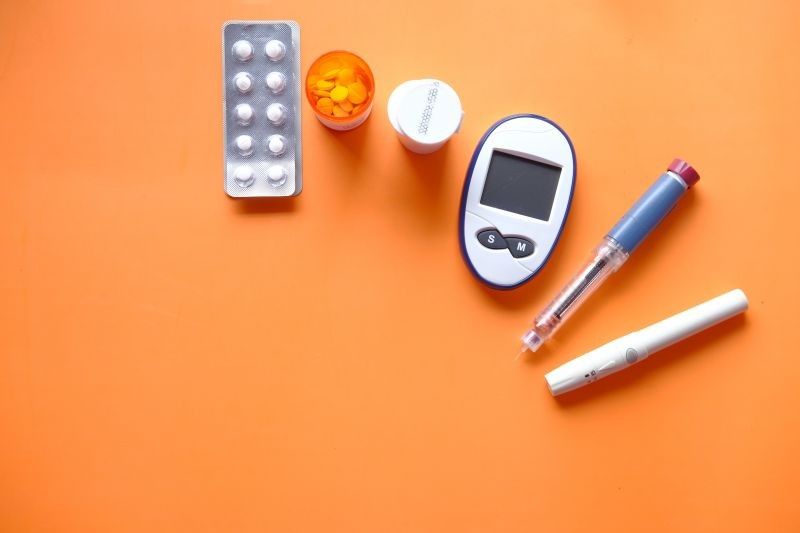Diabetes and the deadly sweet tooth


November is National Diabetes Month, the time when we are given the opportunity every year to raise intensive awareness campaigns on diabetes as an urgent public health issue. This year, the theme is "Access to Diabetes Care."
Health experts on my online show, Pamilya Talk, confirmed that diabetes still remains as one of the top killer-diseases in the Philippines today, claiming the lives of 37,265 Filipinos in 2020. Dr. Cecilia Jimeno, an endocrinologist from the UP College of Medicine, cited data from the Philippine Statistics Authority (PSA) that diabetes ranked fourth among the causes of death in our country last year, next to heart diseases (99,680), cancer (62,289) and cerebrovascular diseases (59,736).
The World Health Organization's (WHO) figures, on the other hand, indicate that diabetes is the ninth leading cause of death around the world, with diabetes cases increasing dramatically over the years. Worldwide, there are more than 422 million people with diabetes. According to the WHO, in 2019, 1.5 million individuals succumbed to the deadly disease.
Fast facts on diabetes: What is diabetes?
Diabetes is a chronic disease that occurs either when the pancreas does not produce enough insulin or when the body cannot effectively use the insulin it produces. Insulin is a hormone that regulates blood sugar. Complications of diabetes include blindness, kidney failure, heart attack, stroke, and lower limb amputation.
Types of diabetes
There are two main types of diabetes: Type 1 and type 2.
Both types of diabetes are chronic diseases that affect the way your body regulates blood sugar, or glucose. Glucose is the fuel that feeds your body’s cells, but to enter your cells it needs a key. Insulin is that key.
People with type 1 diabetes, like multi-awarded singer-songwriter Gary Valenciano, don’t produce insulin.
Dr. Jimeno explained, “Ang lumang tawag sa type 1 diabetes ay insulin-dependent or childhood-onset diabetes. Sira ang pancreas nila, and since the pancreas is destroyed, hindi na sila nag-po-produce ng insulin. Kaya wala silang insulin – 'yun 'yung hormone o chemical sa katawan natin na nag-re-regulate ng blood sugar natin. Ang gamot sa type 1 ay insulin-injection. 'Pag tinamad silang mag-inject, ma-e-emergency sila.”
People with type 2 diabetes (formerly known non-insulin-dependent or adult-onset) don’t respond to insulin as well as they should and, later in the disease, often don’t make enough insulin. It may be likened to having a broken key. More than 95% of people with diabetes have type 2 diabetes.
Dr. Jimeno shared, “Type 2 yung pinaka-common. Ito 'yung namamana. Pero kahit namamana mo siya, kung bata ka pa at maingat ka kumain, nag-eexercise ka, may posibilidad na maiwasan mo yung type 2 diabetes. Pero kahit wala ka namang family history, puwede ka pa ring magkaroon ng diabetes if you become overweight at walang exercise. Sa type 2 diabetes, usually, hindi mo kailangang mag-inject ng insulin. Tablet lang ang kailangan mong inumin.”
Both types of diabetes can lead to chronically high blood sugar levels which can damage the heart, blood vessels, kidneys, eyes, and nerves. This is the reason why early diagnosis and treatment are important.
Symptoms of diabetes include: excessive thirst, increased urination, hunger and weight loss despite maintaining normal food intake, wounds that heal slowly, skin problems, fatigue, and tingling or numbness in the feet or toes.
Marisa Sanchez’ diabetes journey
Filipino singer-actress-host Marisa Sanchez was one of those diagnosed with type 2 diabetes.

Sanchez narrated to our Pamilya Talk viewers that there was a time she became so irritable, she thought she was just having hormonal imbalance. It turned out that her sugar level was already very high.
She revealed that she then exhibited symptoms like dizziness, blurred vision, increased urination, excessive perspiration, and constant hunger.
She was initially scared about the consequences of diabetes and the difficulty of lifestyle change. But with the support of her family, friends, and her doctor, she was able to overcome her fears and difficulties.
Sanchez advised people with diabetes to maintain a positive attitude, sustain a healthy lifestyle, and take their medication and doctors’ orders dutifully.
The role of family as a support system for diabetic people
It is said that diabetes is a family affair. Sanchez emphasized the important role of family and friends as a support system for people with diabetes, and as a way of managing the disease.
Also included in this support system are pharmacists, who are among the most accessible healthcare professionals. People regularly go to pharmacies for their or their family’s healthcare needs, thus, pharmacists can serve as counselors to people with underlying illnesses, particularly those with diabetes.
Bryan Posadas from the Philippine Pharmacists Association (PPhA) says, “Minsan naaaway kami pag humihingi kami ng bagong reseta. Akala nila gusto lang namin silang pahirapan kaya pinapabalik sila sa doctor. The reality is, kaya namin kayo pinapabalik sa doctor ay para makita yung progress ng pasyente at kung kailangan bang i-adjust yung dosage, etc. Nire-remind ng pharmacists yung mga patient na, ‘Paubos na ang gamot mo, kailangan mo nang bumalik sa doctor.”
Prevention and treatment of diabetes
To prevent or delay the onset of type 2 diabetes, Dr. Aurora Macaballug from the Philippine Society of Endocrinology Diabetes and Metabolism (PSEDM) reminded the public to have a healthy diet, regular physical activity, maintain a normal body weight, and avoid tobacco use. “Ang battlecry namin diyan ay ‘Apat Dapat’—'yung tamang diet, regular exercise, pag-inom ng gamot, at pagpunta sa doctor. Kailangan may disiplina—diet, exercise, tapos gamot at regular na follow-up—kailangan kumpleto!”
Effective management of diabetes depends on patients’ self-care. Adherence to medication is a key part of healthcare. Apart from compliance to medication, implementing lifestyle changes that goes along with medical advice is also crucial.

Medication non-adherence in patients leads to substantial worsening of the disease, increased health care costs and even death. But approaching individuals about non-adherence should be done in a manner that allows them to address the issue without fear of being reprimanded. The idea should be to inform and collaborate with them in order to help them get the most out of their medications and lifestyle.
Finally, Dr. Macaballug emphasized that people with diabetes have an increased risk when they become ill, so being extra protected is a must. Vaccines are one of the safest ways to protect one’s health. So aside from the COVID19 vaccines, diabetic patients must also get the following vaccines: influenza vaccine, pneumococcal vaccine, TDAP vaccine (tetanus, diphtheria, pertussis), Hepatitis B vaccine and Zoster vaccine.
--
Watch Pamilya Talk on Facebook, YouTube, and Kumu (@JingCastaneda – 5:30-7:00pm Monday, Tuesday & Wednesday). You can also follow my social media accounts: Instagram, Facebook, YouTube, Twitter, and Kumu. Please share your stories or suggest topics at editorial@jingcastaneda.ph.



















